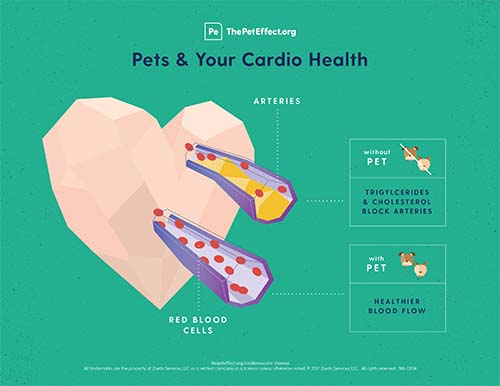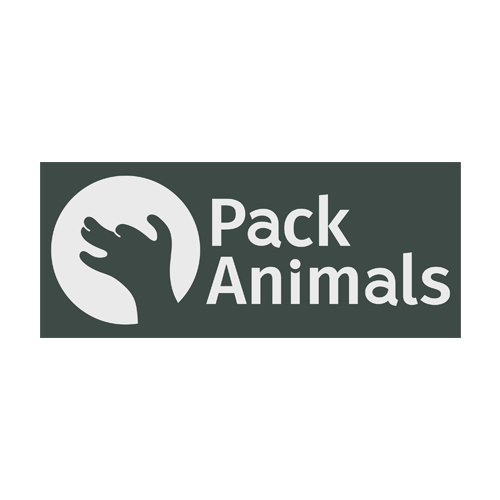HABRI-funded Study Provides Evidence Supporting Participation in Cat-Fostering Program for Improvements in Mental Health Among Older Adults
Washington, D.C. (November 15, 2023) — The Human Animal Bond Research Institute (HABRI) announced the results of a HABRI-funded feasibility study that suggests fostering a shelter cat may contribute to alleviating loneliness and improving mental health in older adults living independently alone. This study, published in the Journals of Gerontology, Series B, was conducted by researchers at the University of Georgia and Brenau University.
The research team, led by Dr. Sherry Sanderson, DVM, PhD, Associate Professor in the Department of Biomedical Sciences at the University of Georgia College of Veterinary Medicine, explored the impact of fostering a shelter cat on loneliness and well-being in older adults living alone. The research also investigated whether these older adults would express interest in adopting their foster cat after common barriers, such as access to veterinary care, were removed.
“The ill-effects of loneliness and social isolation, particularly for older adults, are well-documented, and more strategies are needed to improve health outcomes for this population,” said Dr. Don Scott, MD, MHS, Campus Director of Geriatrics and Palliative Care and Associate Professor of Medicine at August University-University of Georgia Medical Partnership, and co-investigator on this research project. “This project shows that fostering cats can make a measurable difference in the lives of older adults living alone.”
“Our results show that by removing some perceived barriers to pet ownership, including pet deposit fees, pet adoption fees, pet care supplies and veterinary support, we can not only help older adults live healthier, happier lives but we can also spur the fostering and adoption of shelter cats into loving homes,” added Dr. Sanderson.
Study participants were recruited through in-person presentations and flyers posted at The Athens Community Council on Aging (ACCA), regional community organizations, senior living facilities and local and regional publications. Participants completed health surveys before placement with cats and completed follow-up surveys at 1-month, 4-months, and 12-months post-adoption. Participants were given supplies to ensure they could care for the cat for the duration of the study, and received monthly check-ins and veterinary care to ensure human and feline participants remained in good health. Assistance to the study participants included cat food, litter and supplies provided by Nestle Purina Pet Care. All cats were spayed/neutered, vaccinated, dewormed and treated for fleas and microchipped before entering the study. Shelter cats were provided from either the Athens Area Humane Society or Campus Cats Rescue.
Findings from this feasibility study reveal that when adjusted for physical health, loneliness scores were observed to significantly decrease at the 4-month mark after the cat fostering began. A similar 4-month improvement that approached statistical significance was observed for mental health. Almost all (95.7%) of study participants decided to adopt their foster cat at the completion of the study. At the 12-month follow-up, loneliness scores were no longer statistically significant. It is theorized that the 12-month follow-up results were impacted by the COVID-19 pandemic, which resulted in a substantial proportion of older adults experiencing elevated levels of loneliness and social isolation during that time.
“HABRI is proud to support this first-of-its-kind research which provides promising evidence that a cat fostering program for older adults has potential to create a lasting human-animal bond that benefits both human and cat health,” said Steven Feldman, President, HABRI. “We’re thankful for the tireless efforts of Dr. Sanderson and her research team who faced significant challenges in completing this important project during the COVID-19 pandemic.”
About HABRI
HABRI is a not-for-profit organization that funds innovative scientific research to document the health benefits of companion animals; educates the public about human-animal bond research; and advocates for the beneficial role of companion animals in society. For more information, please visit http://www.habri.org.
About University of Georgia
Chartered by the state of Georgia in 1785, the University of Georgia is the birthplace of public higher education in America—launching our nation’s great tradition of world-class public education. What began as a commitment to inspire the next generation grows stronger today through global research, hands-on learning and extensive outreach. A top value in public higher education, Georgia’s flagship university thrives in a community that combines a culture-rich college town with a strong economic center.
Contact
Logan Trautman
logan@inspireprgoup.com
###





